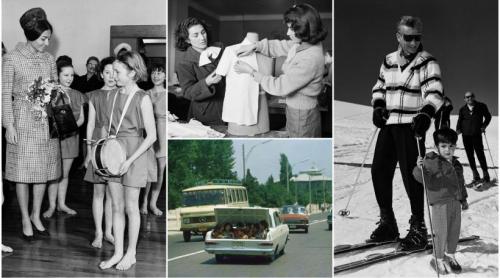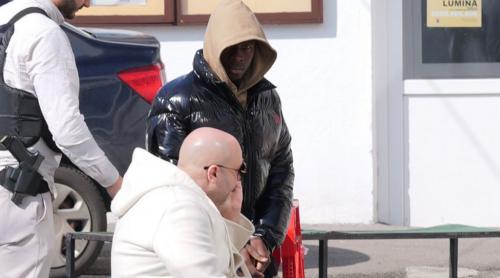
Olga Titiriga stands on the porch of the house she built more than 50 years ago, together with her husband. The house is empty now. The woman stands on the porch from dawn to twilight looking at the passers-by, among which she hopes to see her son, Vasile Titiriga. He left Romania 21 years ago, fleeing the communist regime. The family did not have word from him ever since.
|
|
|

|
|
Tears of a mother still waiting for the return of the son
|
Policemen in the neighborhood also know her very well, because she always asks them if they can find her boy. She does not wait for an answer. They know that too, and just tell her to stop crying, for he will eventually return home to see her.
"If you will go missing your mother will cry for you too," answers back the woman.
Since the regime change in December 1989, Mrs. Titiriga hoped for her son to return, now that the communism he fled was over. She still believes he must be alive and well, someplace on this earth. "I do not understand why he does not want to come back and see me, so that I may pass away in peace," says Mrs. Titiriga.
Vasile Titiriga was a teenager when he was already thinking about leaving communist Romania. Nobody could talk him out of his decision. "I will not stay in this country, in this filth. I do not want to live here anymore. I will leave. Mother, donât get cross with me, but rest assured that I will leave. I have no idea how I will do it, but I will," said young Vasile to his mom.
He witnessed how hard life was for his mother, who worked in pitiful conditions, night shifts, at a factory in Bucharest. He dreamed of living in a developed, civilized country, and for him to provide his mother all she could not have here: a decent life.
At 18, though, he followed into the footsteps of his mother, and got hired at the same works she was, as a locksmith.
"He was a true handyman, able to fix anything. Around the house he did all the work a man does, since our father had died," remembers Vasileâs sister, Irina.
Vasile tried to flee the country twice, during 1983. He was captured in Hungary and handed over to Romanian authorities; he did seven months of prison term and also lost his job for his failed attempt to flee Romania.
But he hanged on to his dream and one year later he crossed the Danube.
His mother remembers: "I still can recall it as if it just happened: I was visiting some relatives, and when I came back home I found all the doors open and all the lights lit inside, but no trace of him. Nobody had seen him, nobody had talked to him. Then I understood that he was again going to cross the border. That morning was the last I saw of him." It was 26 December 1984.
One of the young men who crossed the border along Vasile died. He drowned while they were swimming across the River Danube. Mrs. Titiriga was called to identify the body, but that was not her son, Vasilica - as she called him.
"My boy made it over the border. Why then he did not contact us ever again? I do not know that. That I do not know," says she.
"I recall Vasilica very well: he was a good boy, had lots of friends, but if I were to meet him in the street I do not think I will be able to recognize him," said Irina.
After the demise of communism she asked various embassies for information on her brother. At one point she heard a rumor that he might be in Italy, but the Italian Embassy in Bucharest informed her that no one of his name was on Italian territory.
The sister thought then of sending pictures of her brother and letters asking for support to the various Romanian parishes in the United States and Australia.
She even accompanied her mother to the priest to ask him to open the Book [the Bible, opened at random, is believed to give answers on the questions asked].
"It opened where the color was red; this meant he was alive, as I felt too," said Mrs. Titiriga. The priest told her to stop crying and take comfort in the fact that the boy "was alive and well, where ever he might be now."
No one lived in Vasileâs room since he left. His mother could make some extra money with renting the room, to supplement her meager pension: three million lei [almost 100 dollars] after 28 years of work in the factory.
But she could take that decision. Her boyâs clothes are still as he left them behind. He had lots of them, since he liked to stay in fashion. But when Vasile left the house and the country, he was carrying only the clothes on his back and a little money borrowed from his mother.
He had no steady income since he was kicked out of his job after his failed attempt to leave the country, so he raised one with repairing things around peopleâs homes.
The house he left 21 years ago survived the demolition plans of [former dictator Nicolae] Ceausescu, and has not been touched by repair work since. The woman feels no need to toil for the house anymore.
And she can hardly walk now. But she still stands on the porch of her home waiting for God to perform a miracle.
Translation: ANCA PADURARU
Citește pe Antena3.ro
















